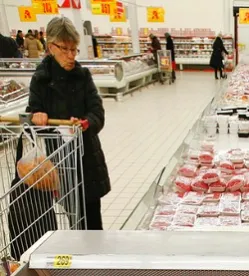On August 10, 2021, China's State Administration for Market Regulation (SAMR) and the Standardization Administration of China (SAC) published the mandatory national standard, GB 23350-2021 on the"Requirements of Restricting Excessive Package - Foods and Cosmetics" (hereinafter "Standard").[1] The Standard replaces the previous 2009 version and will take effect on September 1, 2023, subject to a two-year transition period for industry adoption.
Notably, the amended Standard updates certain terms and definitions, including the following:
-
"Excessive package"
-
"Package layer"
-
"Interspace ratio"
-
"Necessary spatial coefficient"
More importantly, the determination methods for some important concepts also are amended. For example, the "interspace ratio" is one of the factors that determine whether a package would amount to an excessive package. This term refers to the ratio of the volume of unnecessary space (that is not occupied by the contents) to the total package volume. In the 2009 version, the interspace ratio is determined by product categories (e.g., for health foods, the interspace ratio must be no more than 50%). In the new Standard, however, the interspace ratio is determined according to the net content of a single product. For example, when the net content is more than 30 g but no more than 50 g, the interspace ratio must not exceed 40%.
In addition, the "necessary spatial coefficient" (i.e., the correction factor for the measurement of space required to protect food or cosmetics) has been revised. In the 2009 version, the necessary spatial coefficient was set as 0.6, whereas in the new Standard, separate values are assigned for different types of food and cosmetics. For example, 5.0 is set for beverages, 10.0 for biscuits, and 5.0 for toothpaste.
According to China's Standardization Law, products that do not meet mandatory standards may not be produced, sold, or imported. In addition, the Law on the Prevention and Control of Environmental Pollution by Solid Wastes that took effect on September 1, 2020, specifically requires that manufacturers and operators must comply with mandatory standards that restrict excessive packaging of commodities. Thus, after the two-year transition period expires, food and cosmetics that do not meet the new Standard will not be allowed to be manufactured and sold on the Chinese market.
This is a clear signal by the Chinese government to strengthen the enforcement of restrictions on excessive packaging. Thus, industry should make use of the transition period to ensure compliance with the new Standard.
[1]See Announcement on National Standards of People's Republic of China (No. 9 of 2021), available at: http://std.sacinfo.org.cn/gnoc/queryInfoid=21896B2FE00426C0A6D473586ABB066C







 />i
/>i

